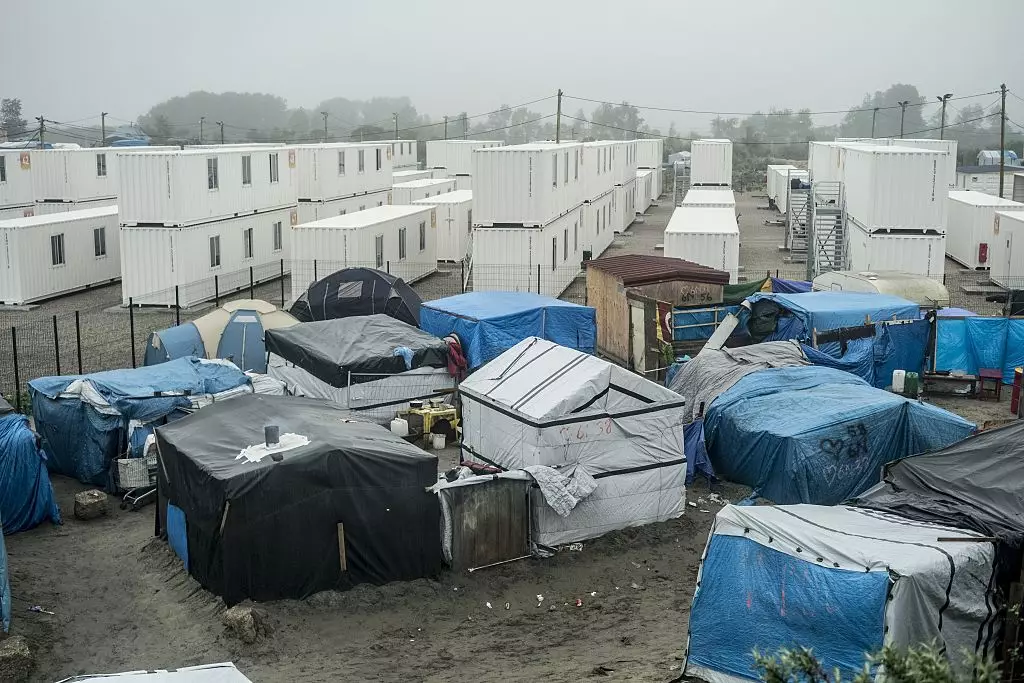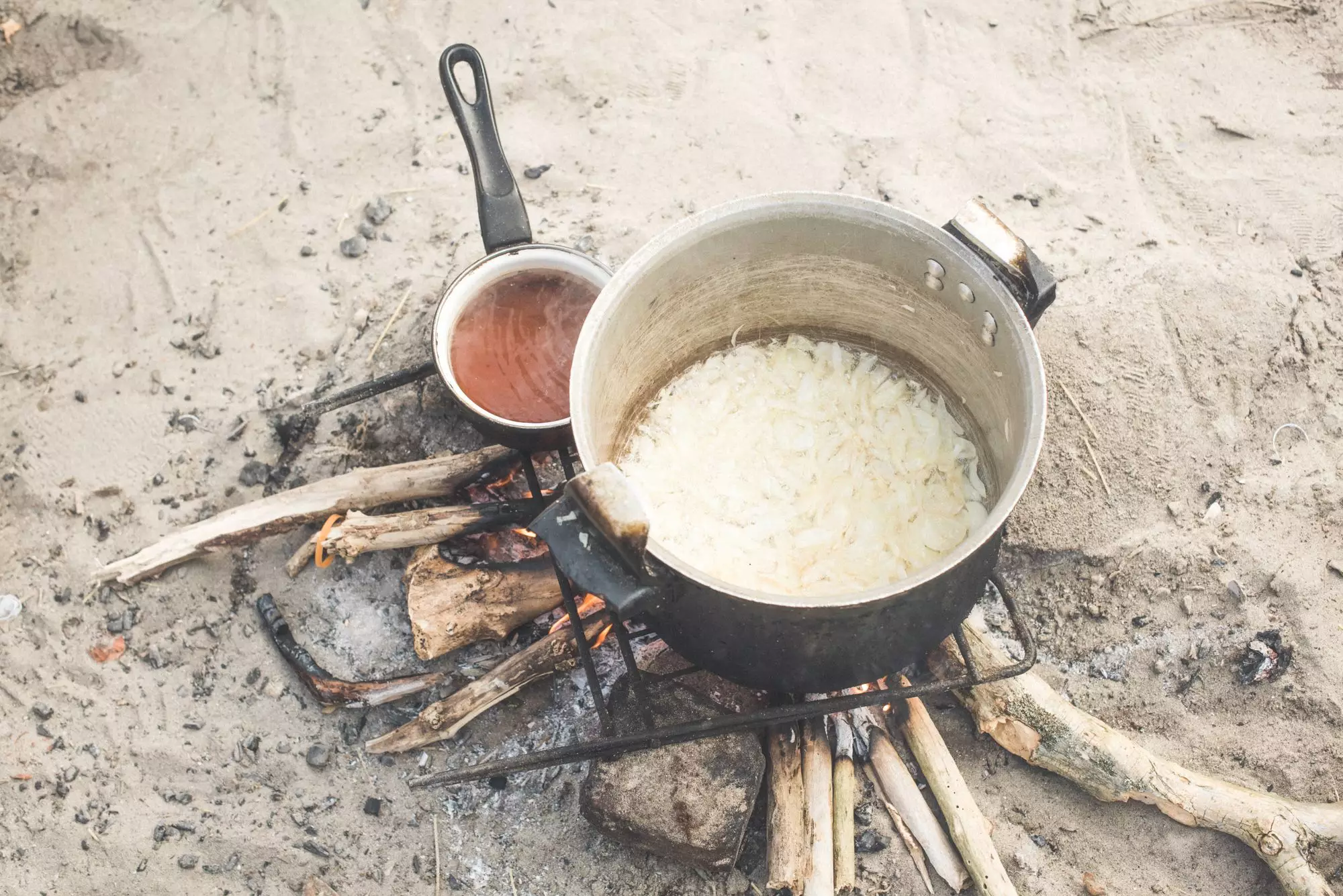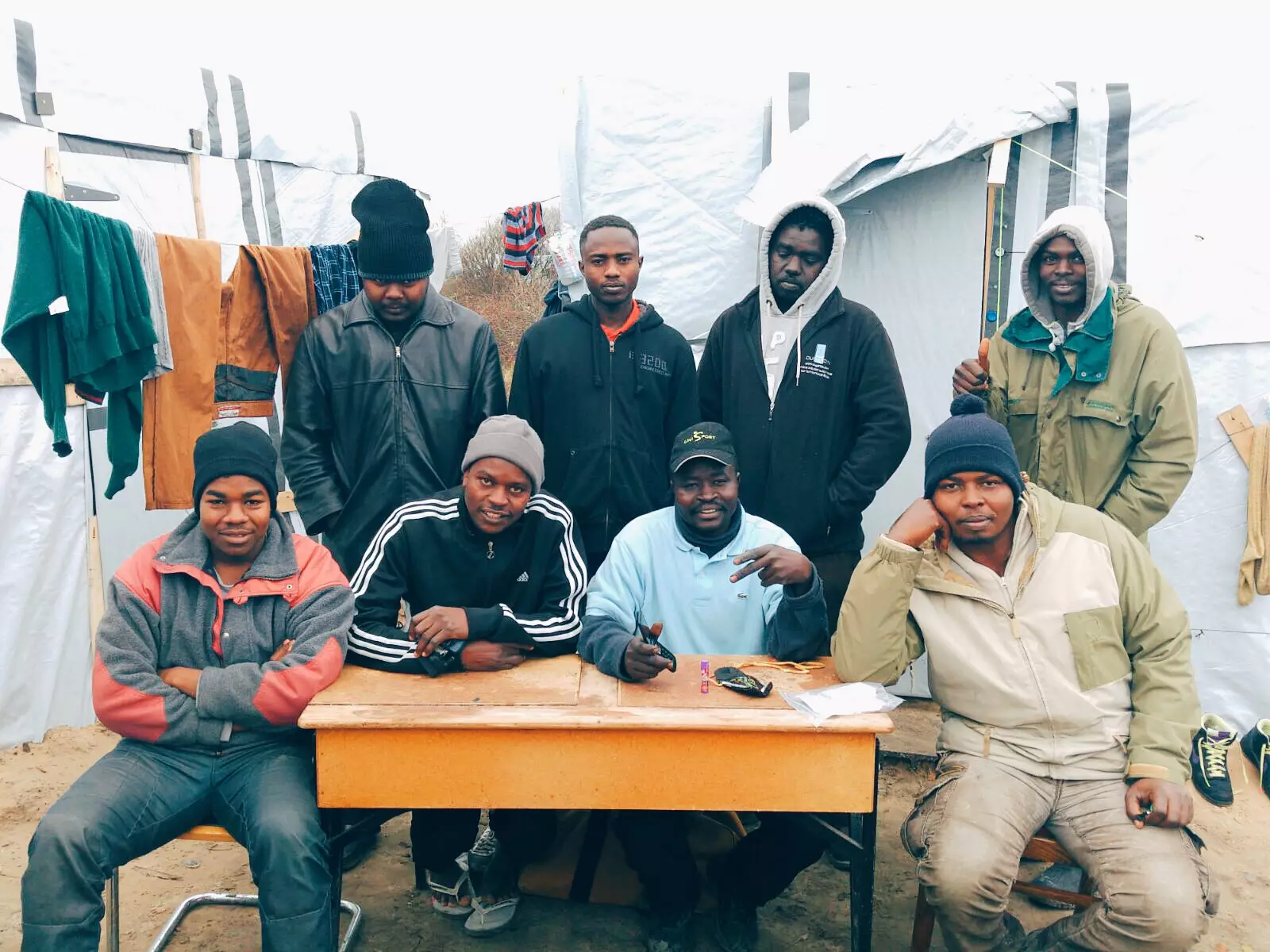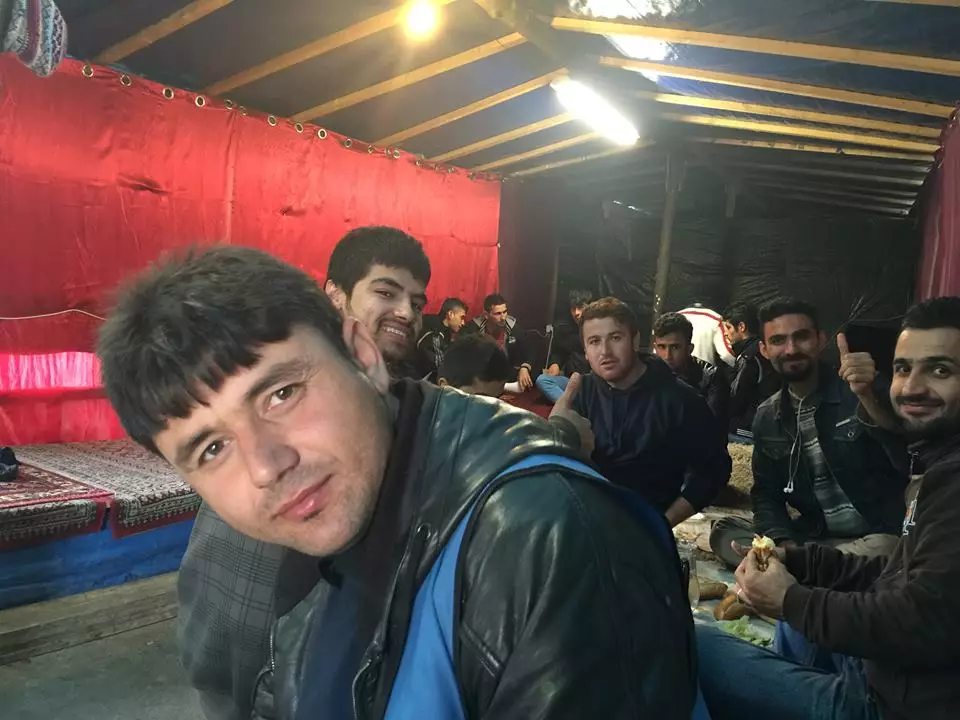
The Jungle in Calais. Credit: Getty Images
There's a lot of stuff in the news about the Calais Jungle Camp. Newspapers warn us that there are thousands of refugees waiting to pounce on the UK, but in reality these are just ordinary people who have had to flee the horrible conditions back in their own war-torn country and they're just looking for a little kindness and understanding.
These camps aren't new - there have been various jungle camps in and around Calais since 1999. When one is closed down the migrants simply move on to another unoccupied area; figures from last month put the current population of the jungle camp at 7,300.
Advert
Riaz Ahmad came to the jungle in December 2014, from Italy. He initially came as a refugee but now spends all his time working on the camp to help others. He's originally from Pakistan and in his time he's helped volunteers, distributed food and worked as an interpreter in the medical and legal centres. The jungle saw a boom in new refugees last autumn, so Riaz went out and brought caravans into the camp, giving vulnerable families somewhere to stay. He now volunteers at the coordination office, helping refugees get information they need about living at the camp. He spoke to the LADbible to talk about what life at the jungle is like.
Despite the obvious hardship and difficulties, a palpable sense of community prevails.
"The people in the jungle wake up very late because they are trying to jump on trains and lorries in the night and they get back in the middle of the night. They normally wake up around noon to 1pm. There are a few people who wake up early around 8am; these are the people who are seeking asylum in France, so they haven't been awake all night."
And what's it like on a day-to-day basis for those once they've failed getting over the border and everyone else?
Advert
"When people wake up, they go about their daily routine. If people want to shower, they need to go to the Jules Ferry Centre to get a ticket to queue. If they don't wake up early enough, then they wash themselves in the many water points situated around the camp. These water points are open to the elements and are not warm in the winter. Then they'll make breakfast; food is provided by donations that are given to l'Auberge des Migrants, Salam Organisation and Care4Calais Warehouse. These organisations hand out food parcels for the refugees to cook for themselves and they can cook on stoves in their shelters or on a fire. They might also get food from the Ashram Kitchen."

Credit: Megan Majd
And what about events, education and other necessities?
Advert
"There are various things in the jungle to do to pass the time. Some people go to the school to get lessons, some people go to the immigration centre to work on their paperwork, some people sit in restaurants and have chai with their friends, and some people go to the Jules Ferry Centre to charge their phones. There are also collection points in the camp where people can get clothes from the organisations. Volunteers come to the camp to provide activities for the refugees, including art, sports, music and English and French lessons. People can also walk into town to do shopping or go the library, or retrieve letters and parcels."
And then it's a repeat of the night before, trying to board lorries and trains?
"The Ashram Kitchen is back providing food at 4pm. Some people will wait and eat food from the Belgian kitchen, which serves food at 9pm. This is the time when people begin to prepare for trying to jump on lorries or trains; they'll eat, pack some water and food, their documents, mobile phone and wear several layers of clothes, which they can discard if they make it to the UK.

Credit: Megan Majd
Advert
But doesn't this daily routine put strain on everyone?
"The mood in the camp changes throughout the day. The camp is generally a happy place, even though people are frustrated and a bit tense. Sometimes the tension bubbles up and fights occur; when the police become antagonistic, then tensions rise. The police have recently been controlling the shops and restaurants, which has been very scary and upsetting for the people who live in the camp. Police are confiscating all of the goods and food that was being sold and it's lead to people feeling uncertain about their future and the future of the jungle.

Riaz with other volunteers. Credit: Megan Majid
Advert
"I still continue to meet new volunteers and show them around the camp. I enjoy my work in the jungle and really appreciate all of the help from the many volunteers and organisations. I will continue to work with L'Auberge and help refugees for as long as I am able." What a decent lad.
Worldwide Tribe recently went along to Calais with an iPhone and showed the refugees Pokémon Go. Worldwide Tribe has been working at the jungle since last year and has raised over £40,000 for the refugee crisis as well as organising events such as football tournaments for refugees. And what did the refugees make of the game? Have a look yourself.
Credit: Worldwide Tribe
This is a wonderful example of how tech can cross
boundaries and borders. The lads playing the game look properly excited to be joining in,
much like the lads in this office were when the game (finally) dropped in the
UK. I think it goes to show that, underneath it all, we're all the same.
Words Claire Reid
Featured Image Credit: